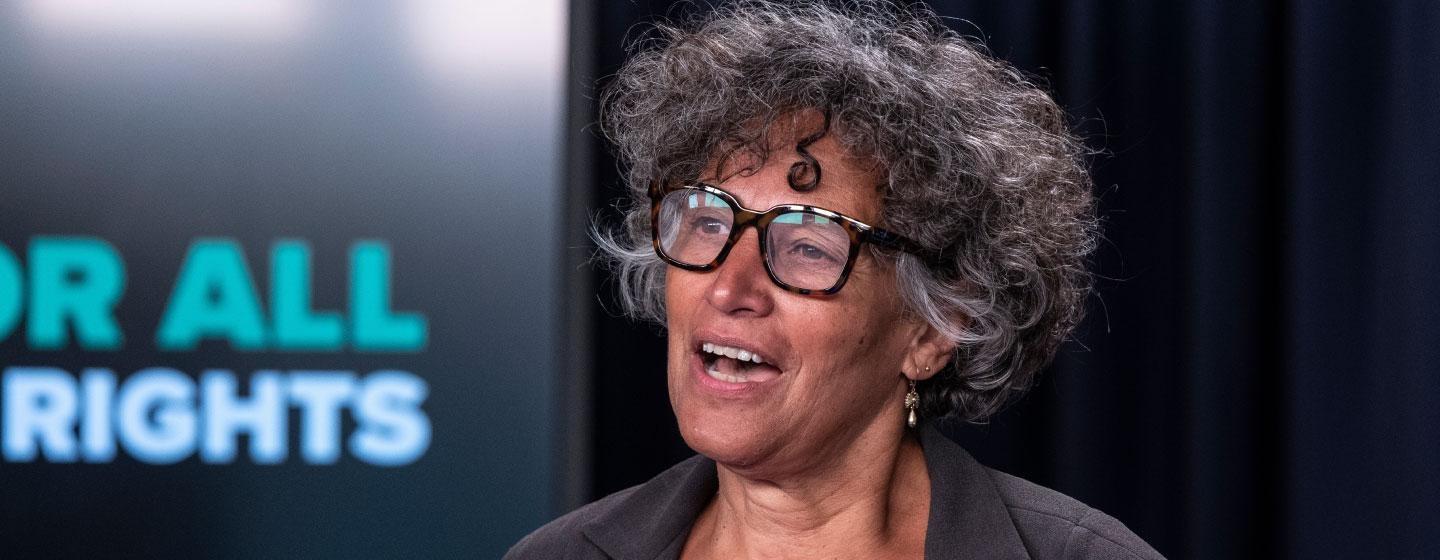Winter is Coming. New York's Top Doctor Says "Get Vaccinated"

Winter is Coming. New York's Top Doctor Says "Get Vaccinated"
State Health Commissioner Dr. Mary Bassett recently visited various healthcare organizations on a listening tour of the North Country.
With COVID-19 cases already on the rise in the region, Bassett said it’s important to get vaccinated.
"The main protection that we're asking people to please attend to is (to) wear a mask when you feel it's appropriate for you, get all of your shots. We're not doing nearly well enough at that."
Bassett caught up with Champlain Valley reporter Cara Chapman about the multiple viruses the state’s been dealing with, starting with newer COVID variants. Their conversation has been lightly edited for clarity.
DR. MARY BASSETT: So the original omicron variant has faded, and was replaced with subvariants like B.A.4, B.A.5, BF.7. The newest kids on the block are BQ.1, BQ.1.1 and there are some others. They all seem to be very immune and evasive, which means that they infect people. What our vaccines are doing for us now is protecting against serious illness, hospitalization and so on. We have a wonderful lab in New York State, the Wadsworth Lab, and we've identified these variants there. They've been identified across the state. They're here, and we expect that they're going to increase in prevalence. Please get your shots. That's my message.
CARA CHAPMAN: During the pandemic, we have seen lower than-normal flu numbers, or at least we did for a time because people were masking. What are you anticipating this winter when it comes to the flu?
BASSETT: Well, we already have widespread flu in our state, meaning that we are identifying flu in a large number of counties. So we are concerned that we may be headed for a difficult flu season. We often look to the southern hemisphere — mainly Australia — and they're reporting that they've had a difficult flu season. So we want people to get that flu shot. The White House advisor on COVID, Ashish Jha, has said there's a reason that we have two arms: one's for your flu shot, the other's for your COVID booster.
CHAPMAN: We had pretty big scares this year with the monkeypox virus and poliovirus. Are those things people should still be worried about?
BASSETT: Well, we have plenty of vaccine for monkeypox and we really want anybody who identifies a personal risk for getting monkeypox to get vaccinated. We are not seeing many cases these days in the whole state. Outside of New York City, we have just short of 350 individuals diagnosed and almost all of those individuals are in the greater metropolitan area of New York and Long Island or Westchester. But we do know that it's there and that, as the weather gets warmer again in the springtime, we may see another surge of infections. Please get vaccinated.
In the third week of July, a young, unvaccinated adult in Rockland County was diagnosed with paralytic polio. We looked at our wastewater — a polite word for sewage — and identified that, from May, we've found evidence of poliovirus in multiple settings. We never thought we'd see polio causing paralytic disease in our state, but we have and now we really have to address the vaccination of children — on time — as well as any adult who is not sure of their vaccination status.
CHAPMAN: We've just run through a whole slew of health crises of varying sizes, but is there anything in particular that keeps you up at night or worries you the most as we're heading into the colder months?
BASSETT: So far, the COVID virus has been mutating in a way that evades our immune system. It's become more and more transmissible, but it hasn't gotten more severe. But that doesn't mean that won't happen. And if that happened, it would be very frightening indeed. We know that more people are getting infected who aren't getting very sick. But if we have a situation where people are getting infected and very sick, that will be very frightening.
I also worry about the neglect of other common diseases that are leading causes of death. Health departments keep track of our smoking rates. I'm in the North Country right now. It has smoking rates at 20% of the adult population. That's what it was in New York City 20 years ago, and it's far too high. So we still have old-fashioned public health issues and, of course, we have the opioid epidemic so there's plenty to keep me awake at night.
This story originally reported by Cara Chapman for North Country Public Radio
Related

The flu could be especially serious this year. Here's how you can prepare
Australia and New Zealand, which experience an earlier flu season than the U.S., are reporting the most severe season in five years.


